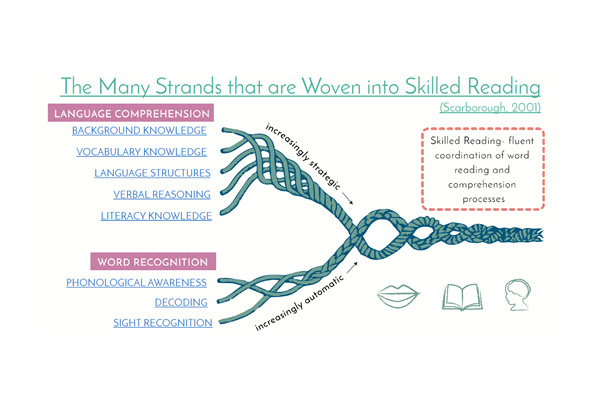Parenting , Stories
|September 17, 2019| 3mins
Literacy – the ability to read, write, communicate and comprehend language. It is well known that literacy is one of the most important foundations for success in school and life. Historically, literacy was seen as something that was taught at school by a teacher with the use of academic resources, however, with the help of research this view has highlighted the importance of literacy in the early years before schooling.
Today many families do still view literacy as a skill that is taught in the kindergarten class by an Early Childhood Teacher. It is important however, to understand that the ‘early years’ is considered to be from 0-5 years of age and the process of developing the skills necessary to be literate happens throughout all of these years. From the moment they are born babies strive to communicate with the world around them. It starts with a cry then moves to smiles, babbles, squeals, pointing and as they get older it becomes words and sentences, thus beginning the wonderful world of reading and writing.
Recently, Australia’s literacy performance against international standards was detailed for International Student Assessment (PISA) study. The study indicated that 14% of Australian students aged 15 had failed to reach a baseline level of proficiency considered essential for future development in reading and other areas of knowledge acquisition, while 21% were functioning at the minimum baseline proficiency level.
A poor foundation in literacy prior to starting school not only reduces the likelihood of later success in literacy, but also increases the risk of children ‘dropping out’ of formal education. Poor reading and writing skills are associated with lower self-esteem, poorer educational and social outcomes, and higher rates of unemployment, welfare dependence and teenage pregnancy (Silverstein et al, 2002). High levels of literacy have been linked to increased academic and occupational success, increased self-esteem and a motivation to learn, participation in and a commitment to education, socially acceptable behaviour, and a positive regard for one’s abilities and prospects leading to empowerment.
Some children come to school better off than their peers when it comes to their early literacy skills. Students who start out with optimal literacy foundational skills tend to thrive and grow academically, while less advantaged students tend to get left behind.
In the diagram below it shows the different areas that must be developed first in order to be able to successfully read. As illustrated the ability to be a skilled reader comes from the development of eight different areas which must be built upon during the early years. With fun, interactive, and engaging activities along with a language rich environment children are able to form the strong basis needed for language comprehension and word recognition.

Because we understand that before a child can learn to read or write (which has become a large emphasis for school readiness) a child must develop their building blocks of literacy – the ability to speak, listen, understand, watch and draw. The foundation of literacy is incorporated into the Timber Tots Program, therefore building confidence from the time children are babies. Our Educators focus on ensuring all children have the best access to developing their literacy knowledge and skills in a fun and playful environment. From their indoor and outdoor activities, library and garden classes, and regular excursions, to a variety of different environments the children are provided with an enriched setting that is designed to build on their literacy. Educators observe the children for their prior knowledge and build up from there. Moments such as singing, shared reading, talking whilst playing games, show and tell, art and craft are all fun ways to encourage and build upon a child’s literacy skills.
To further our educators understanding of the value of their role in the educational setting and how to better interact with children to build on their literacy, a session with Read Write Ready was arranged. Read Write Ready is a professional development program that discusses the importance of literacy and how it can be effectively incorporated into daily activities. We discussed all of the areas that are vital to have in order to become a confident and skilled reader.
Professional Development of our people, in specific scenarios which can be applied on a day to day basis, enriches both the working environment and most importantly the future education of our children. We are proud to not only participate but to work closely with Read Write Ready and other beneficial programs into the future.
